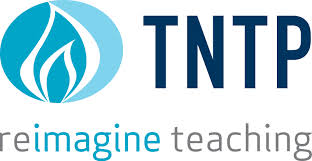This playbook builds off a strong foundation of existing resources and perspectives from other leaders in the early childhood care and education field. Click on the resources below to learn more about the issues that the playbook touches upon.


This playbook builds off a strong foundation of existing resources and perspectives from other leaders in the early childhood care and education field. Click on the resources below to learn more about the issues that the playbook touches upon.
 WEBINAR: Transforming the Workforce for Children Birth Through Age 8: A Unifying Foundation (2016)
WEBINAR: Transforming the Workforce for Children Birth Through Age 8: A Unifying Foundation (2016) Institute of Medicine and National Research Council. Transforming the Workforce for Children Birth Through Age 8: A Unifying Foundation (2015)
Institute of Medicine and National Research Council. Transforming the Workforce for Children Birth Through Age 8: A Unifying Foundation (2015) TNTP, Inc. COVID-19 School Response Toolkit (2020).
TNTP, Inc. COVID-19 School Response Toolkit (2020).